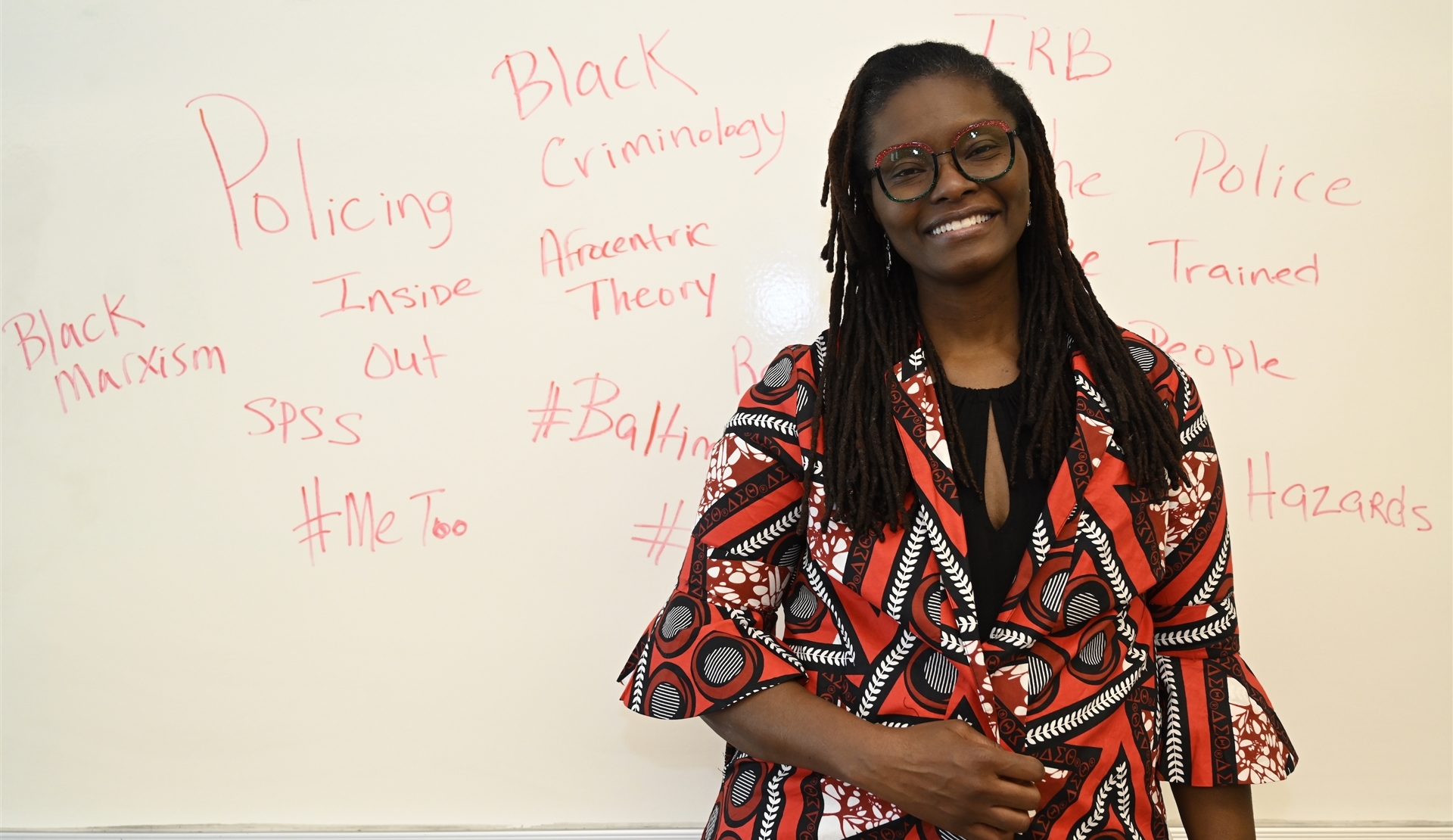Morgan State University Receives $500,000 Grant to Build Safe and Strong Neighborhoods by Engaging Community and Police
Faculty at Morgan State and West Virginia University Collaborate to Examine Situational Policing to Augment Law Enforcement Strategies and Improve Community Relations
BALTIMORE — Morgan State University’s Department of Sociology and Anthropology has received a $500,000 grant from the National Science Foundation (NSF) to conduct hands-on studies of “situational policing” techniques and their impact on citizens living in Baltimore neighborhoods. The concept of situational policing refers to adapting policing style and strategy to the type of neighborhood where police are fighting crime. The study will involve participatory action research, a method in which community members work as partners with the research team to help collect and process data used to create the desired change.
The three-year project is a partnership between Morgan State and West Virginia University.
The MSU component of the research will be led by Natasha C. Pratt-Harris, Ph.D., associate professor, and coordinator of graduate programs in the Department of Sociology and Anthropology. Dr. Pratt-Harris and fellow faculty members Kevin Daniels, Ph.D. and Paul Archibald, Dr.PH (now of City University of New York) will work with residents from Baltimore neighborhoods to collect useful data related to the area's dynamics, location, and physical, social, and economic conditions.
“This is an opportunity to remove the scientific, academic lens and transcend our work through the lens of humanity. I am excited to be able to engage in action-oriented work,” said Dr. Pratt-Harris. “Through this partnership, Morgan will be able to collaborate with a distinguished team to shed light on the needs of Baltimore City communities.”
Researchers will use the collected data to assess each neighborhood based on criteria like the amount of crime, types of crime, the number of arrests, levels of trust in local government and the police, levels of cohesion among neighbors, and the willingness of residents to get involved to help others and keep the community safe.
Communities wrought with crime are traditionally met with an overreaching police presence to a polarizing effect—leading to communities teeming with mistrust and distress. This study aims to show the benefits of situational policing as an alternative to traditional methods, as it is anchored in reimagining the efficacy of law enforcement to create fertile ground for improved community relations by building better connections among law enforcement and the communities they serve, working collaboratively and forming pathways to resources.
Sociologists James Nolan, Ph.D. and Henry Brownstein, Ph.D. of West Virginia University will assist with analyzing the data which will be used to determine solutions and strategies to create safer and stronger neighborhoods.
In 2020, Morgan State University’s Institute for Urban Research (IUR) was commissioned to conduct a preliminary survey, led by Dr. Pratt-Harris, to evaluate community sentiment related to local law enforcement. After an extensive grassroots effort, the IUR released its data collection in a comprehensive examination. The initiation of the survey came in the wake of the 2017 Consent Decree between the U.S. Department of Justice (DOJ), the City of Baltimore, and the Baltimore Police Department (BPD).
About Morgan
Morgan State University, founded in 1867, is a Carnegie-classified high research (R2) institution offering more than 140 academic programs leading to degrees from the baccalaureate to the doctorate. As Maryland’s Preeminent Public Urban Research University, and the only university to have its entire campus designated as a National Treasure by the National Trust for Historic Preservation, Morgan serves a multiethnic and multiracial student body and seeks to ensure that the doors of higher education are opened as wide as possible to as many as possible. For more information about Morgan State University, visit www.morgan.edu.
# # #
Media Contacts:
Dell Jackson and Cheryl Stewart, for University PR
443-885-3022
Contact Information
Office of Public Relations & Strategic Communications
1700 East Cold Spring Lane
McMechen Hall Rm. 635
Baltimore, Maryland 21251
Contact Information
Office of Public Relations & Strategic Communications
1700 East Cold Spring Lane
McMechen Hall Rm. 635
Baltimore, Maryland 21251


